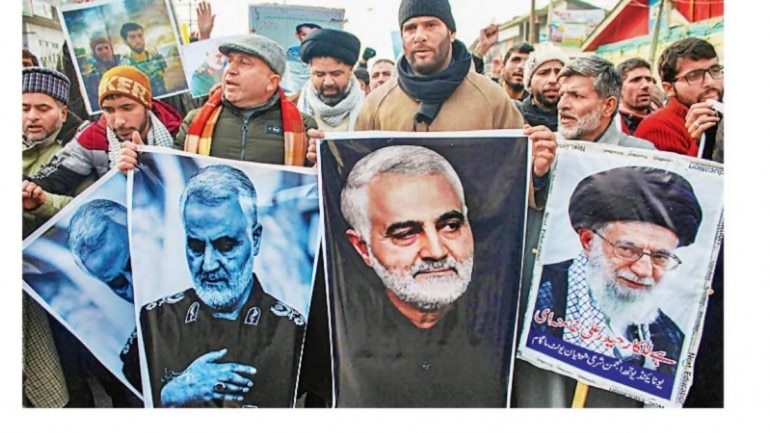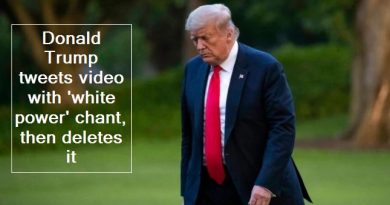Soleimani killing: India urges US, Iran to maintain peace fearing regional instability, rising oil prices
has asked the US and Iran to exercise “restraint” in order to avoid destabilising the region after General Qassem Soleimani, head of the Quds Force of Iran’s Islamic Revolutionary Guard Corps (IRGC) was killed on Friday following air raids by the American forces at Baghdad’s International Airport.
In a press release, the Ministry of External Affairs noted with concern the increased tensions that could impact peace and stability.
“We have noted that a senior Iranian leader has been killed by the US. The increase in tension has alarmed the world. Peace, stability and security in this region are of utmost importance to India”, said the MEA statement.
Statement issued by the Pentagon said that the strike was retaliatory in nature after the US embassy in Baghdad came under attack and was directly sanctioned by the US.
“He had orchestrated attacks on coalition bases in Iraq over the last several months – including the attack on December 27th – culminating in the death and wounding of additional American and Iraqi personnel. General Soleimani also approved the attacks on the US Embassy in Baghdad that took place this week,” the statement said.
India has urged both sides to exercise restraint. “It is vital that the situation does not escalate further. India has consistently advocated restraint and continues to do so”, the MEA statement read.
India a close ally of both the countries will have to do a tightrope walk. For India the stakes remain high since it already was pushed by US sanctions into a corner in not doing business with Iran, any further escalation could put India’s Chabahar project in jeopardy
Harsh Pant, Director at ORF said, “For India, it impacts India’s sea-link communication and energy flows from the region. If there is a dramatic escalation that would lead to spike in oil prices which would have a negative impact on an already slowing down, sluggish economy.”
Most experts are pointing towards the immediate outcome of the US action which would be a rise in prices and the longer impact if things escalate would be on energy supply from the region itself, which would have an adverse bearing on the Indian economy.
Former diplomat Ranjan Mathai, who was the former foreign secretary as also the ambassador of India to Iran said, “The only inmmeditate impact would be if oil prices go up in anticipation of a conflict. That would be damaging for the Indian economy. Much depends on Iran’s response. Serious escalation and action on Strait of Hormuz could impact supplies. But, for us, the immediate concern is oil prices.”
The Iranians have already threatened the US of “consequences” to the action. Soleimani, 62, was very close to the Iran’s Supreme Leader, Ayatollah Khamenei who said “severe revenge awaits the criminals who bloodied their foul hands with his blood”.
Speaking to India Today TV, West Asian expert Dr. Waiel Awwad said, “If a war breaks then it will have catastrophic impact on the region as a whole. The USA now will face stiff resistance… It is a violation of a sovereign state, hence there is a chances of increased voices against USA forces stationed in Iraq. Retaliation against USA forces is imminent.”
Foreign Minister of Iran Javad Zarif is due to visit India for a bilateral meeting with his Indian counterpart Dr. S. Jaishankar on the sidelines of the Raisina Dialogue being held in New Delhi on January 8-10. For now, the visit has not been cancelled




